
























































































































































































































































































































































































































































































































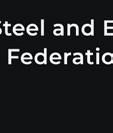
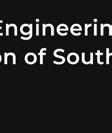

















































































































































































































































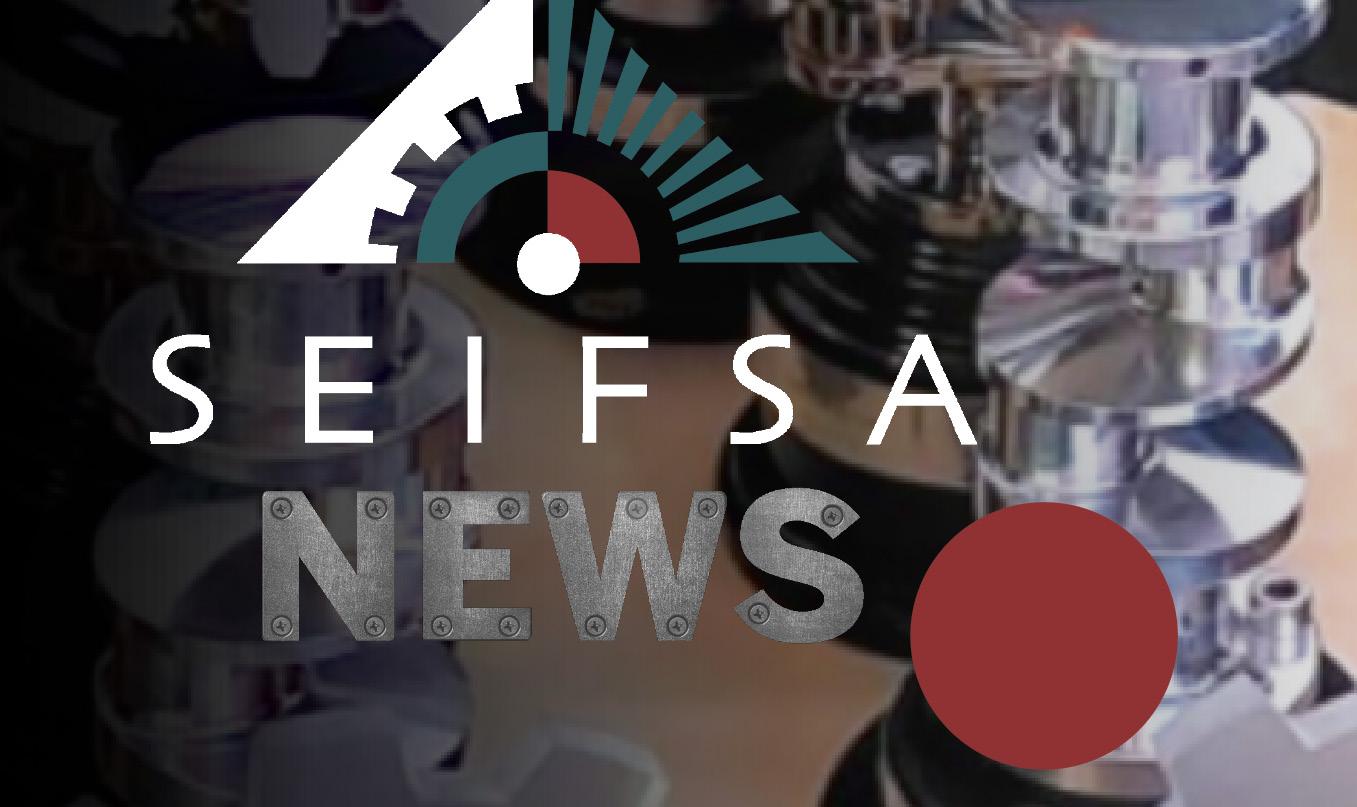

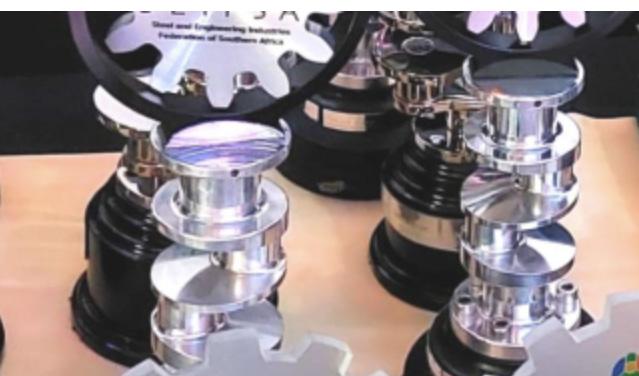

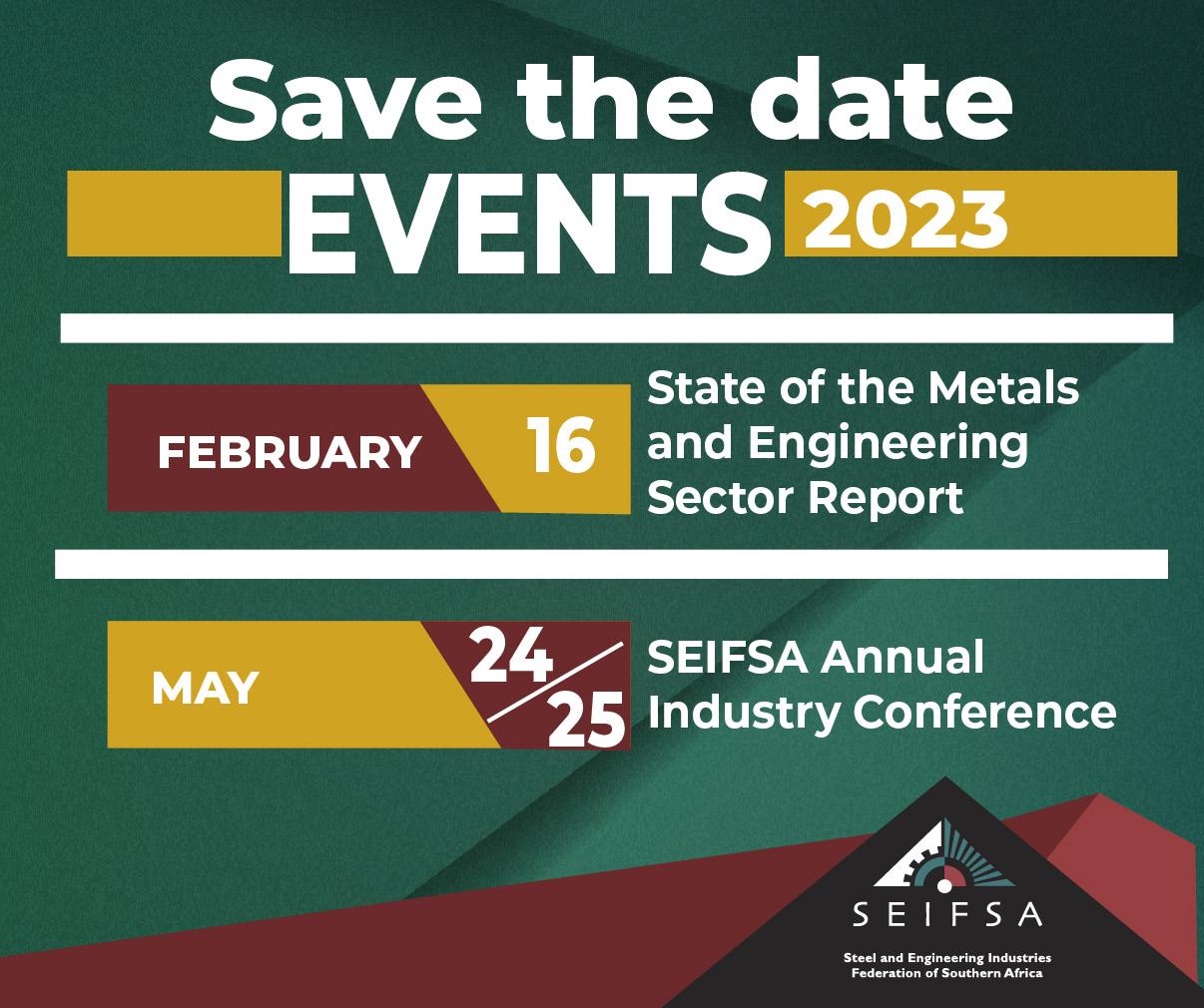
For NEARLY 80 years, SEIFSA has been helping businesses succeed and achieve their goals by proving industry-leading solutions that protect and empower employers

Publisher
Steel and Engineering Industries Federation of Southern Africa (SEIFSA) Advertising sales@seifsa.co.za or (011) 298-9400
Editor Nuraan Alli
Tel: (011) 298 9436 or E-mail: nuraan@seifsa.co.za
Design and layout
Zandile Ngubeni
Tel: (011) 298-9421 or E-mail: zandile@seifsa.co.za
ISSN - 1560 - 9049
Opinions expressed in the articles do not necessarily reflect the views of SEIFSA. Similarly, advertising in this publication does not imply endorsement or approval of any such products or services by SEIFSA. While every attempt is made to ensure the accuracy and correctness of information contained in this publication, SEIFSA accepts no liability for any losses or damages sustained through the use thereof. Articles may only be reproduced with permission.
When a company logo appears with an article, it indicates that the article has been commissioned by the company.
SEIFSA News is distributed free of charge to all companies in the metals and engineering industry.
6 issues published annually.
The world is changing and so must we. We have noticed that members generally prefer to get their news as it happens via various social media platforms and forums. Hard Copy Newsletters, Magazines and even Newspapers are being overlooked for instant access to up to date and reliable information. Thus, it is with a twinge of sadness, that we announce this will be our last edition of SEIFSA News. Rest assured SEIFSA will ensure that you are always kept abreast of newsworthy developments in our industry, your Association, as and when it happens through our various social media platforms and forums. Connect with us on www.seifsa.co.za and info@seifsa.co.za





SEIFSA CEO Lucio Trentini welcomed everyone to the ceremony, saying, “We believed that, notwithstanding the many challenges faced by the sector, there are companies within the metals and engineering (M&E) sector that are doing fantastic, innovative work that must be recognised and celebrated. Companies in the sector have demonstrated that they are capable of innovating, and fostering good relations with their employees, suppliers, customers and the communities around their operations.
SEIFSA is not only honoured to be associated with each and every entry but, more importantly, privileged to recognise and acknowledge excellence.”

MEMSA CEO Lehlohonolo Amos Molloyi said he was happy to join SEIFSA in celebrating excellence, adding:

“
“While most of our members form part of the steel value chain, their products and services are specifically aimed at meeting the needs of the mining industry, with its own unique and complex requirements.
“While most of our members form part of the steel value chain, their products and services are specifically aimed at meeting the needs of the mining industry, with its own unique and complex requirements. MEMSA are thankful to SEIFSA for allowing us to share the stage with the SEIFSA Awards for Excellence this year, we regard this event as an excellent context for the launch of our awards.
“The SA mining equipment industry is well respected for its technological and innovation advancement; however, the pandemic and lockdowns presented a test to our ingenuity and resilience. It is in the midst of these challenges that we witnessed some excellence in innovation, structuring of work and manufacturing processes, and we are proud to report that not one MEMSA member company, which was actively manufacturing for the mining industry, permanently closed its doors during or since the pandemic.”
SEIFSA CEO Lucio Trentini welcomed everyone to the ceremony, saying, “We believed that, notwithstanding the many challenges faced by the sector, there are companies within the metals and engineering (M&E) sector that are doing fantastic, innovative work that must be recognised and celebrated. Companies in the sector have demonstrated that they are capable of innovating, and fostering good relations with their employees, suppliers, customers and the communities around their operations. SEIFSA is not only honoured to be associated with each and every entry but, more importantly, privileged to recognise and acknowledge excellence.”
MEMSA CEO Lehlohonolo Amos Molloyi said he was happy to join SEIFSA in celebrating excellence, adding: “While most of our members form part of the steel value chain, their products and services are specifically aimed at meeting the needs of the mining industry, with its own unique and complex requirements. MEMSA are thankful to SEIFSA for allowing us to share the stage with the SEIFSA Awards for Excellence this year, we regard this event as an excellent context for the launch of our awards.
“The SA mining equipment industry is well respected for its technological and innovation advancement; however, the pandemic and lockdowns presented a test to our ingenuity and resilience. It is in the midst of these challenges that we witnessed some excellence in innovation, structuring of work and manufacturing processes, and we are proud to report that not one MEMSA member company, which was actively manufacturing for the mining industry, permanently closed its doors during or since the pandemic.”
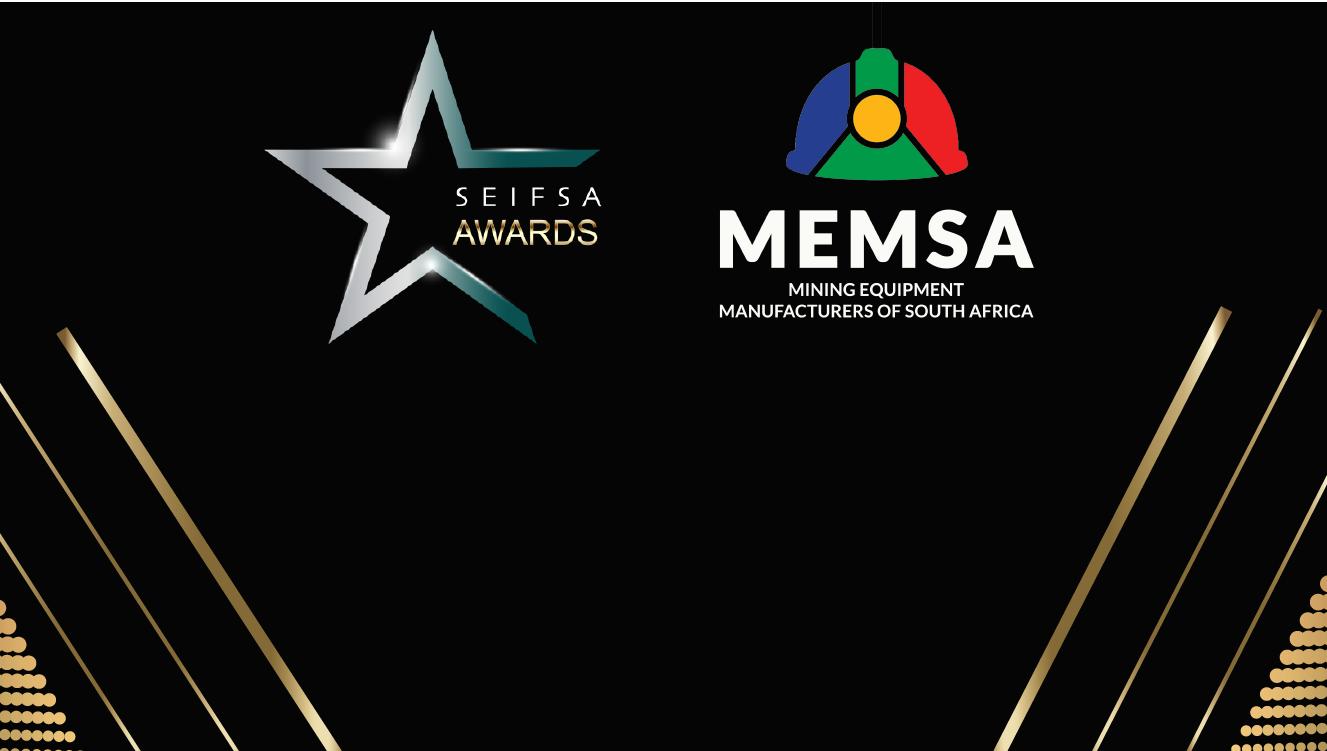
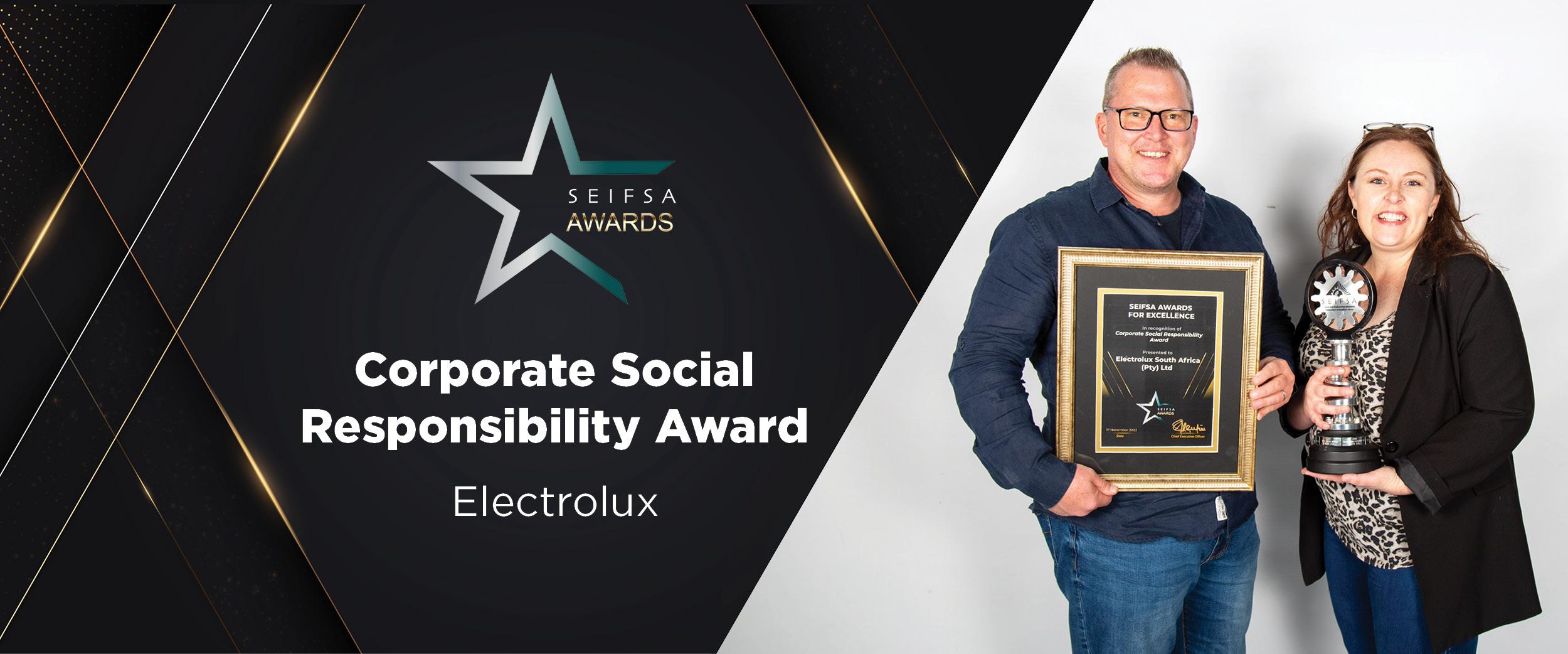
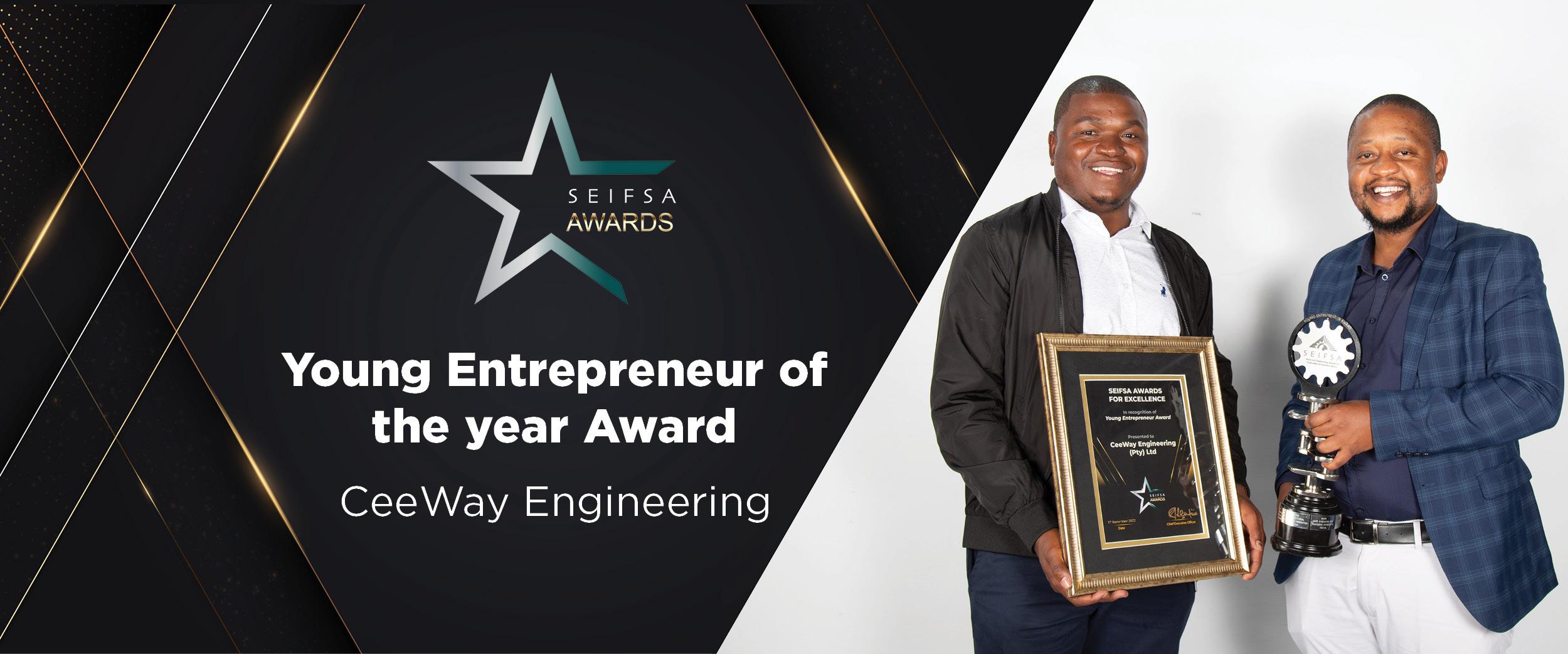
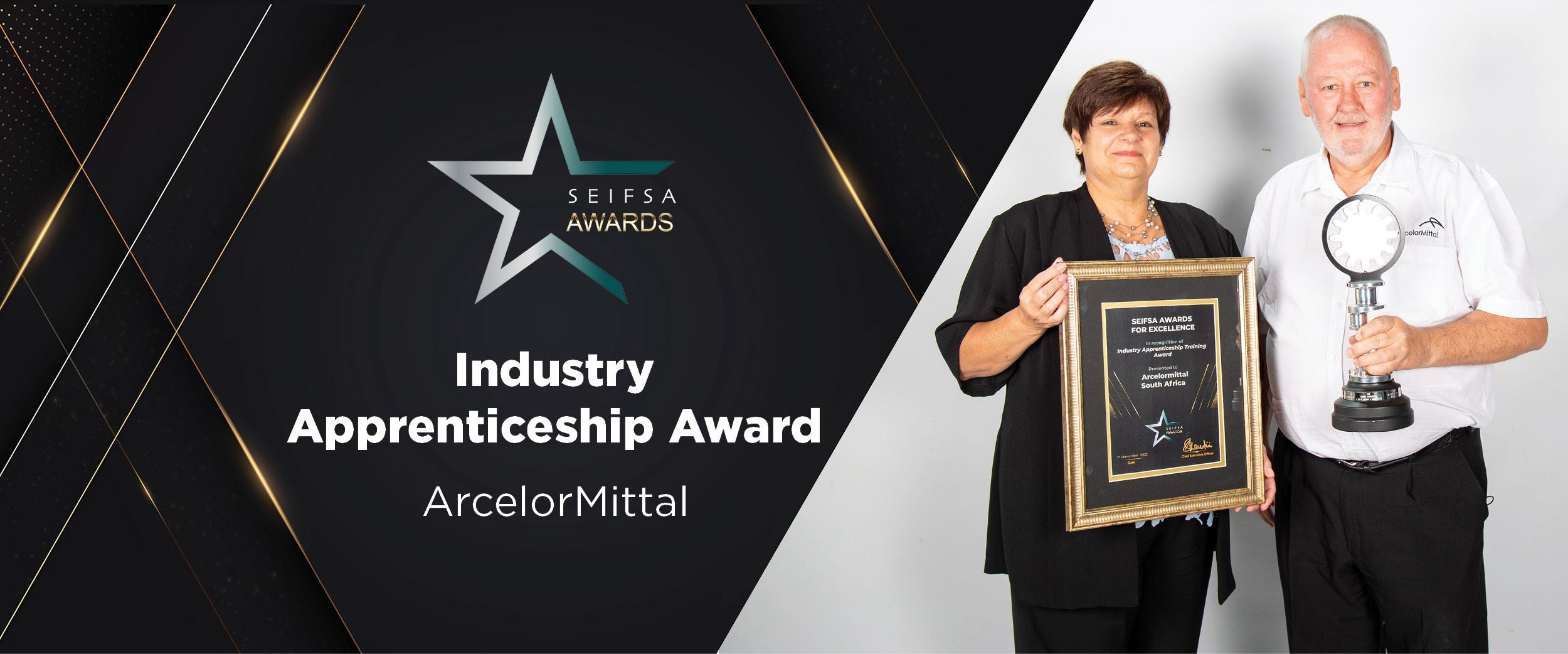
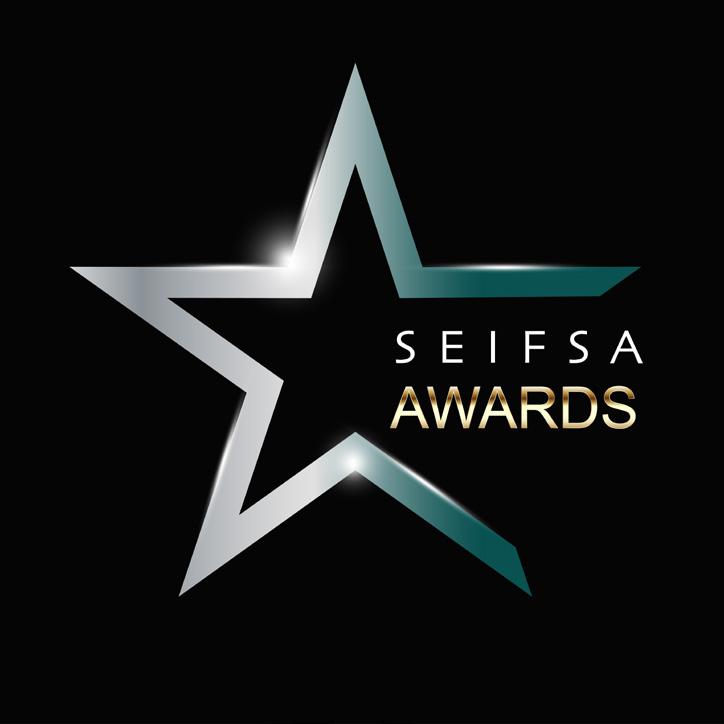





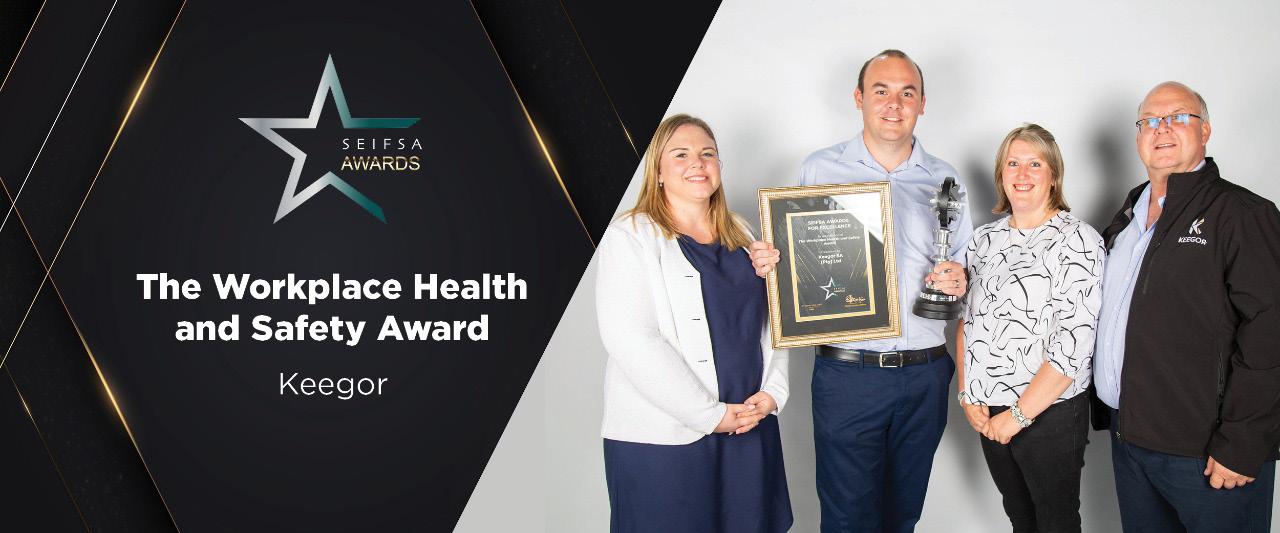
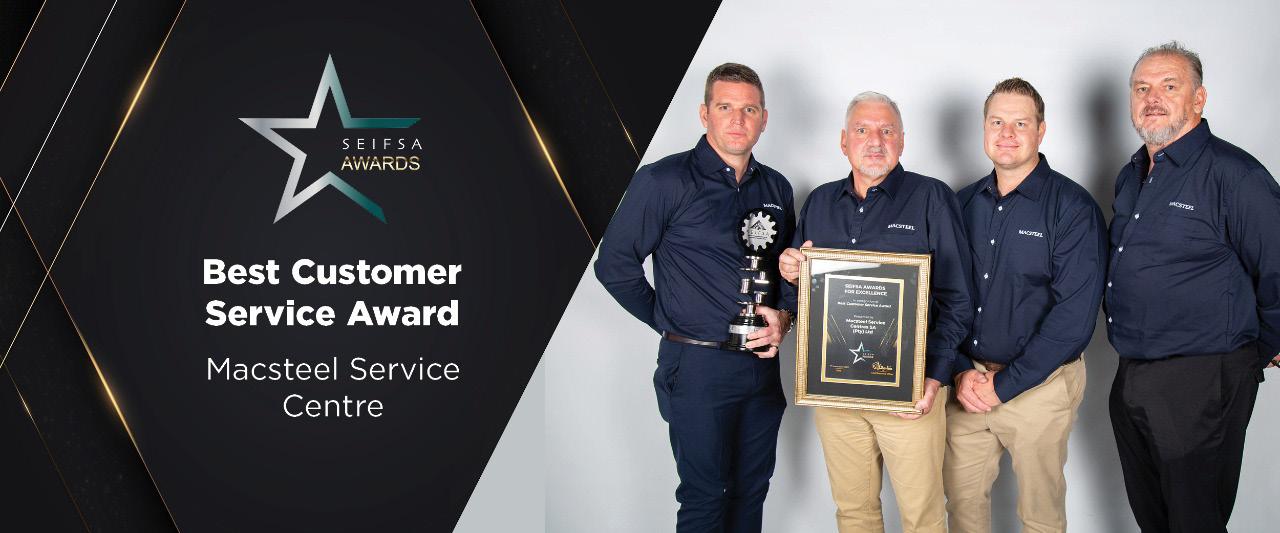





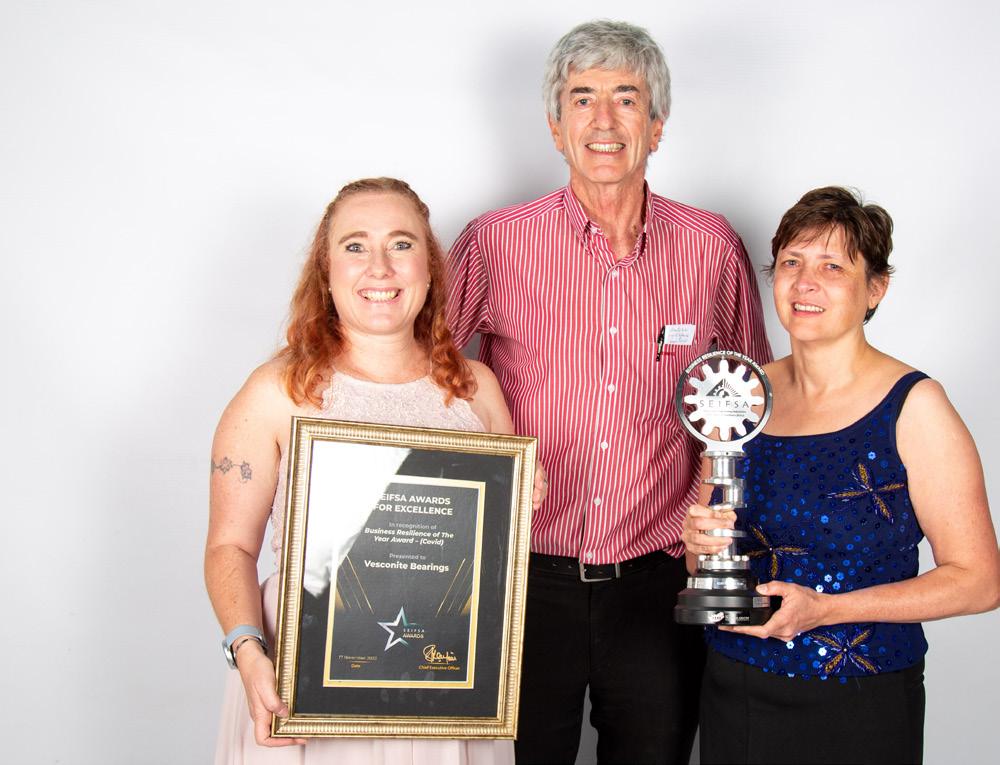



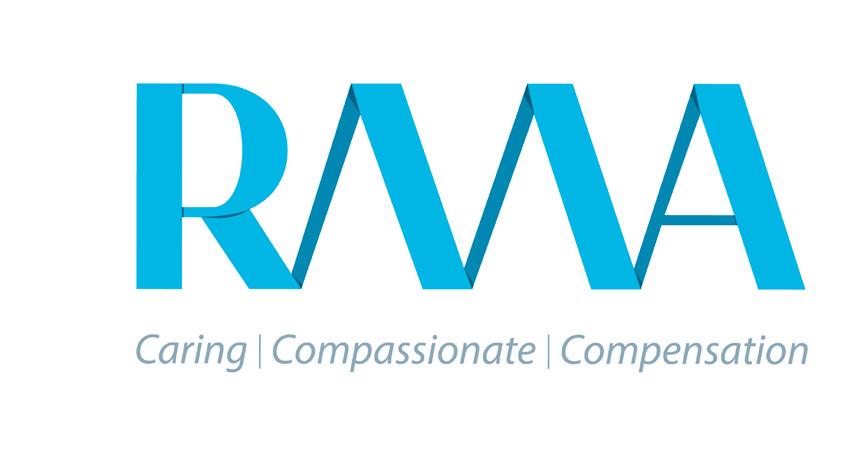
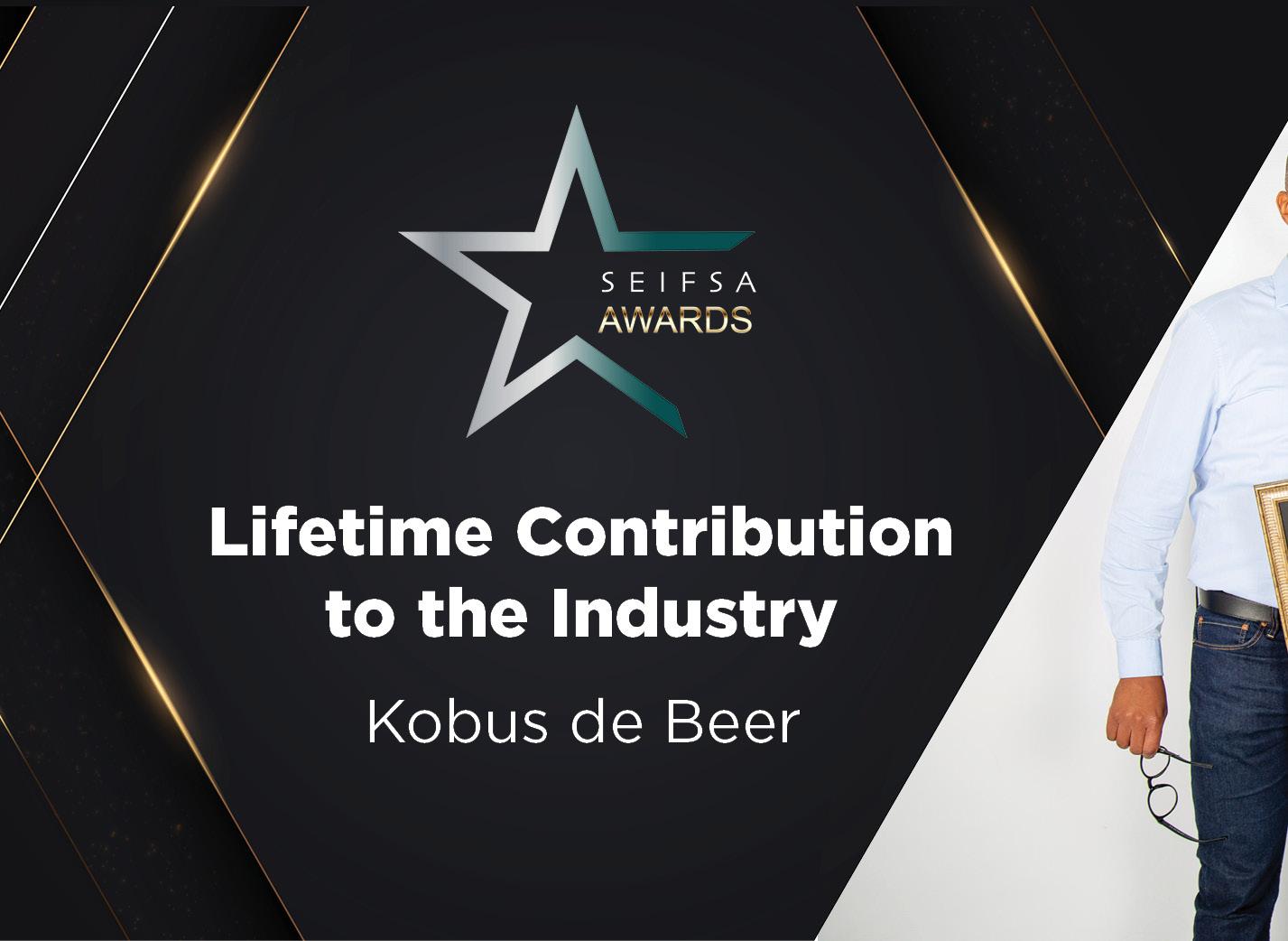








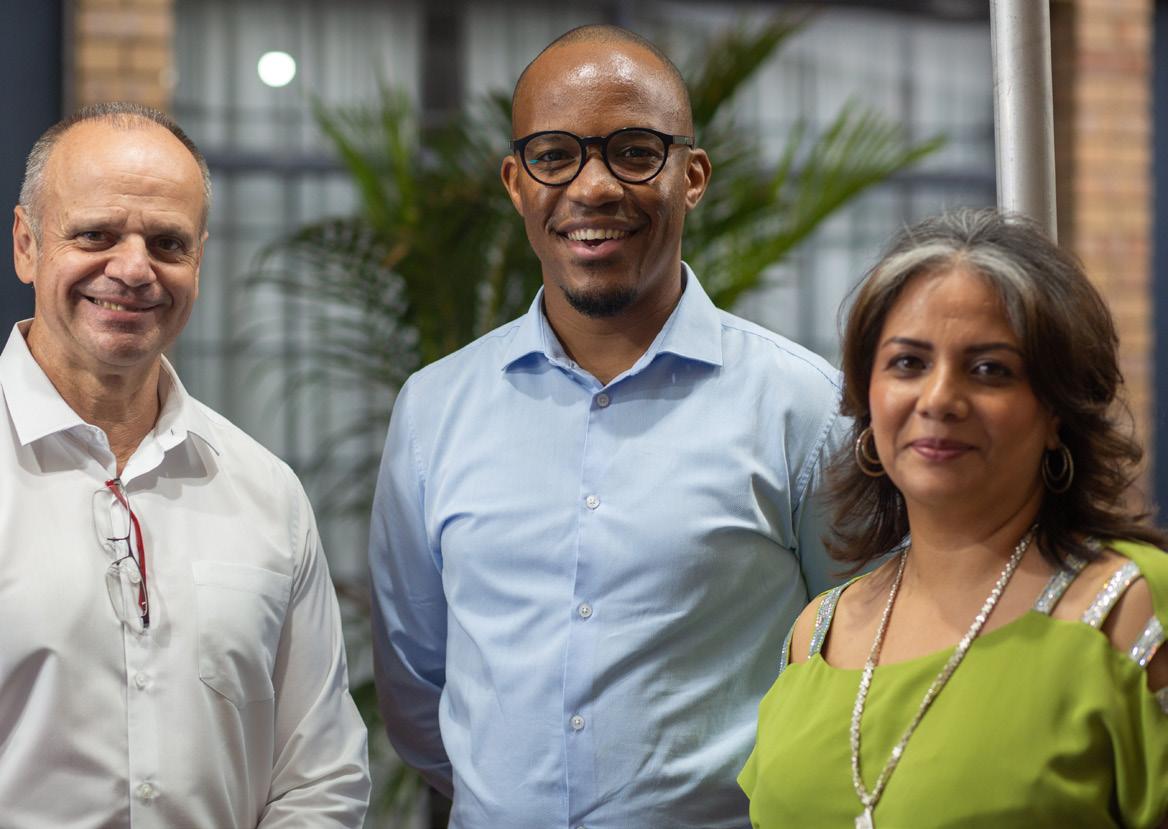

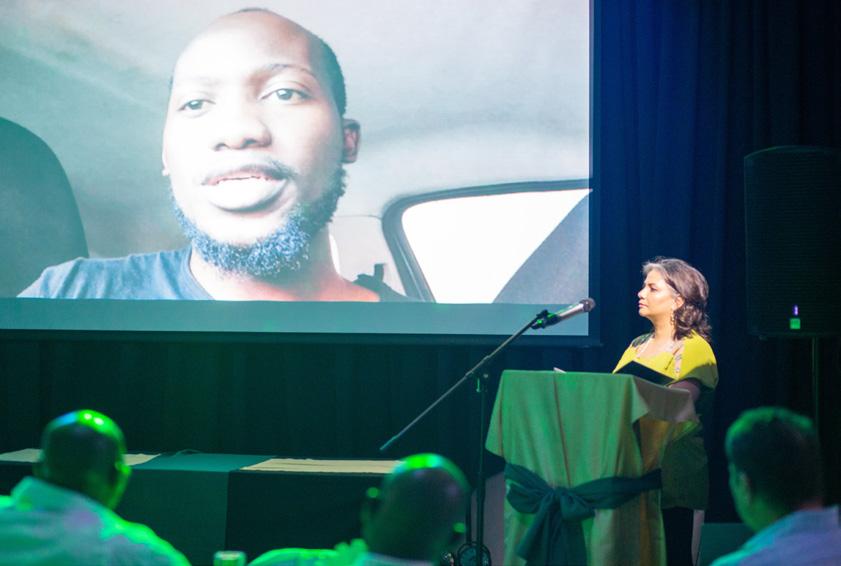
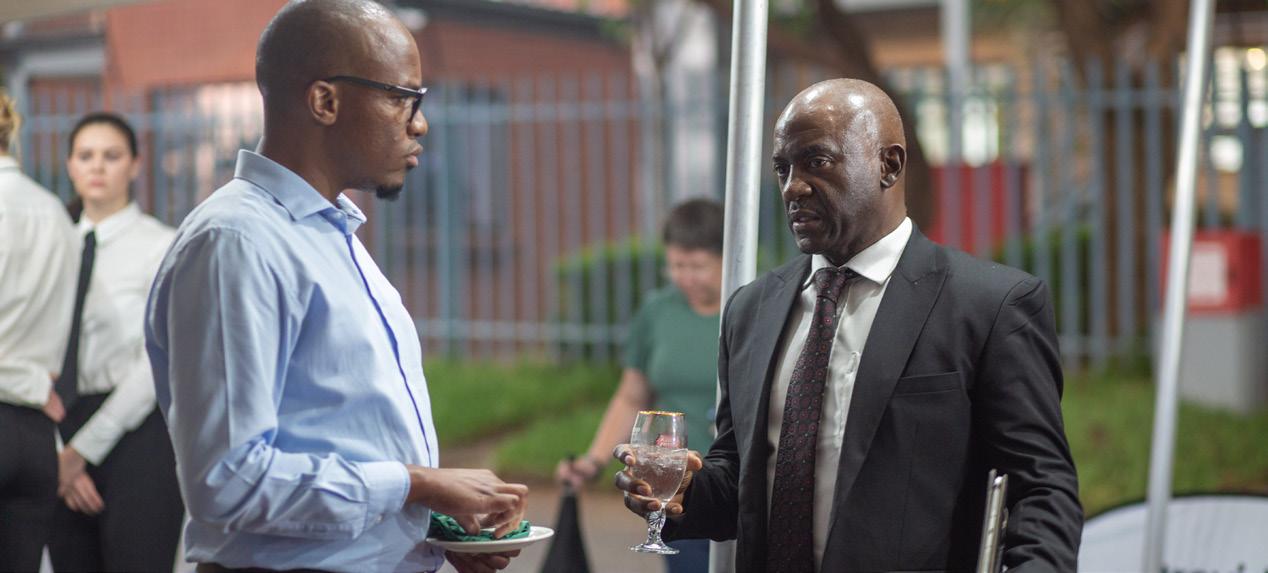

Johannesburg, 21 November 2022 –
The Steel and Engineering Industries Federation of Southern Africa (SEIFSA) has partnered with the Italian-South African Chamber of Trade and Industries (ItalCham) and the Imbokodo Trust with the aim of empowering young black woman and assisting companies to improve their B-BBEE compliance.

The three organisations have signed a memorandum of understanding (MOU) with the aim of exchanging information, including newsletters, reports and market analyses, organising events that provide networking opportunities and introducing potential partners to each other.
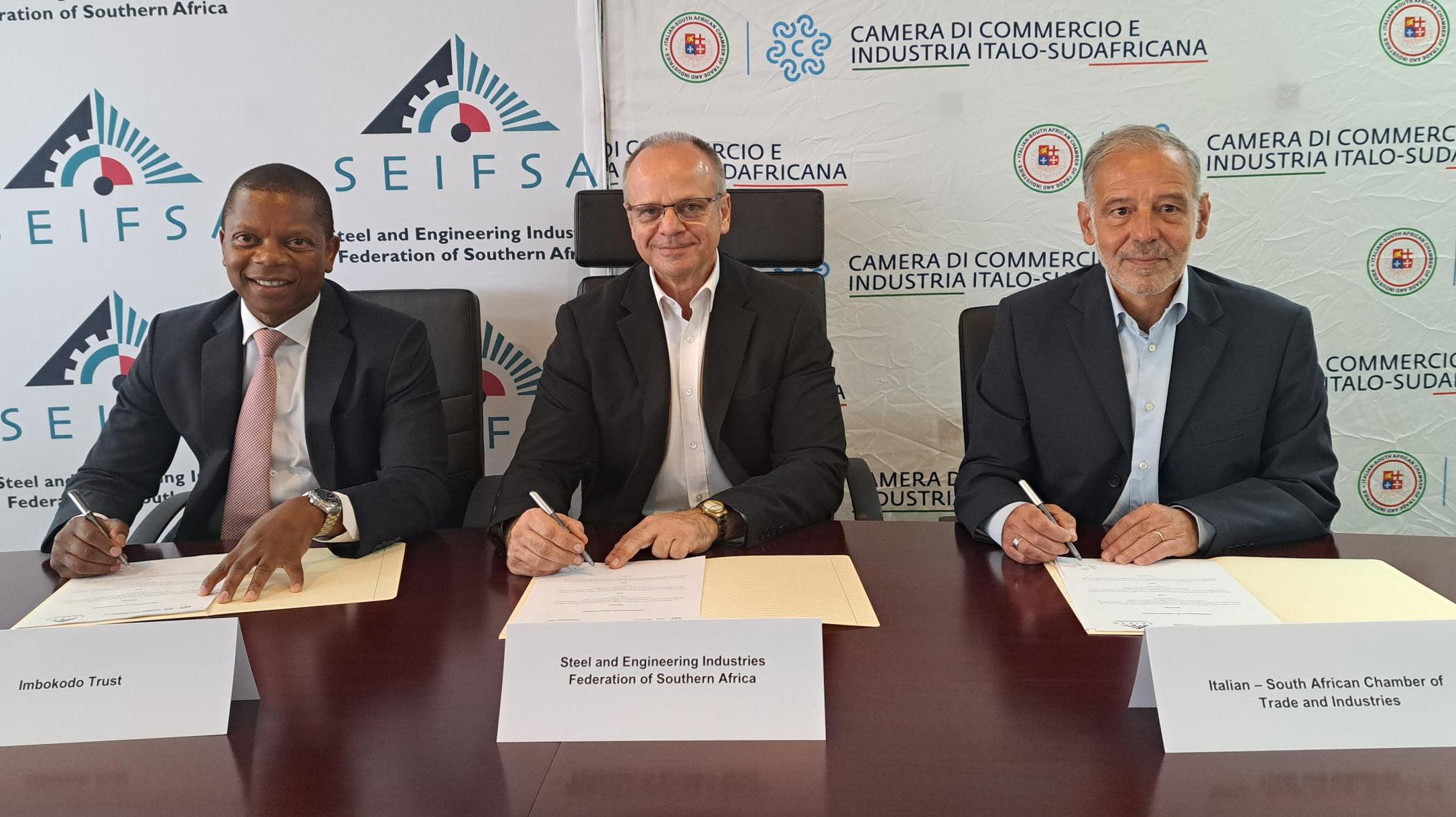
SEIFSA CEO Lucio Trentini, ItalCham president Virgilio Da Molo and Imbokodo Trust chairman Theo Sibiya were the signatories of the MOU. Trentini said: “We are confident that our exciting partnership with the ItalCham and Imbokodo Trust will afford SEIFSA’s affiliated membership an opportunity to address the many challenges faced by young black

woman in the sector and in the process improve their B-BBEE compliance.”
Da Molo said: “This MOU is very important to us as it will allow us to operate the Imbokodo Trust efficiently and effectively, providing simple solutions to our members and ensuring that the ItalCham contributes meaningfully to the
country’s transformation agenda.”
The many synergies between SEIFSA, ItalCham and Imbokodo Trust will contribute to the success of the partnership between the three bodies, all of whom are committed to the highest ethical standards and providing benefits to their membership and beneficiaries.
Trust’s many programmes with strict compliance with B-BBEE legislation, while the Trust has committed itself to contributing donor funding to the SEIFSA Training Centre in the achievement of these goals.
For the three organisations, the MOU is a pathway to addressing the challenges faced by young black woman in the sector, assisting companies to improve their B-BBEE compliance and in the process contributing to a better South Africa.
SEIFSA supports companies in South Africa’s metals and engineering sector through lobbying, advocacy and collective bargaining. Its members range from giant steel-making corporations to micro-enterprises employing fewer than 50 people.
In terms of the MOU, SEIFSA has pledged to find beneficiaries for the Imbokodo
ItalCham promotes and facilitates trade between Italy and Southern Africa through market intelligence and tailormade services and events. It is also a member of the EU Chamber of Southern Africa.
We are confident that our exciting partnership with the ItalCham and Imbokodo Trust will afford SEIFSA’s affiliated membership an opportunity to address the many challenges faced by young black woman in the sector and in the process improve their B-BBEE compliance
“
Public procurement or sales to the government from the metals and engineering sector constitutes 22.9% of total domestic sales. However, for some sub-sectors, like electrical machinery, sales to state organs is as much as 55% of domestic sales.

The administrative and compliance costs for a company supplying the same product to two or more state organs, who may pursue very different socioeconomic agendas, will be exorbitant and punitive.
We have studied the published Preferential Procurement Regulations with grave concerns, particularly over the fact that National Treasury has opted to maintain the position that was contained in the draft regulations that each state organ will be given the responsibility to develop and decide their own procurement policies, particularly as it relates to the socio-economic considerations.
Given the importance of public procurement for the sector, SEIFSA has been actively involved in making national representations on behalf of the metals and engineering sector to the Public Procurement Bill and the Preferential Procurement Regulations.
The SEIFSA submission warned that devolving this obligation to each state organ will create an untenable administrative and compliance environment for domestic companies. The administrative and compliance costs for a company supplying the same product to two or more state organs, who may pursue very different socio-economic agendas, will be exorbitant and punitive.
Regarding the former, SEIFSA was part of the Business Unity South Africa (BUSA) business delegation that consulted on the bill at NEDLAC for the last six months.
On the draft Preferential Procurement Regulations that were published for public comment on the 10th of March 2022, SEIFSA prepared a substantial written submission commenting on these regulations. Subsequently, National Treasury published the Preferential Procurement Regulations on the 4th of November 2022, with an effective date of 16 January 2023.
The submission suggested that National Treasury should develop a national guideline for state organs to comply with in the development of their procurement policies. This is important for institutional coordination and alignment across the multiple state organs. It will also make monitoring and enforcement of regulations possible. Coherence and uniformity should be the basis on which national regulations are developed.
The other concern is the fact that National Treasury have indicated that these Preferential Procurement regulations are a stop-gap policy instrument that will be in place until the Public Procurement Bill is promulgated. The Preferential Procurement Regulations will be in effect from 16 January 2023 and

National Treasury anticipates the Public Procurement Bill to be presented before Parliament by the end of calendar year 2022 or before the end of this fiscal year (February 2023).
roughshod process. All the while the costly, uncertain and disruptive environment that the Preferential Procurement Regulations potentially create will be the prevailing reality for suppliers to the state.
The concern here is that based on historic experience with bills going through the Parliament, National Council of Provinces (NCOP), promulgation and signature by the President (who may also send the bill back through the Parliamentary process for one or other issue) generally takes a long time. One can anticipate that the importance of this bill particularly given the approximately R800 billion to R1 trillion per annum of state spend that it will govern over and all the possible socio-economic considerations that are associated, the parliamentary process will not be a
The unintended consequence of this approach that has been adopted by National Treasury will likely be one where companies may well adopt a wait-and-see approach, which will itself have adverse consequences from the point of view of investment decisions that may be delayed. This again is an example of the own-goals that the country has become accustomed to scoring.
 Tafadzwa Chibanguza Chief Operating Officer
Tafadzwa Chibanguza Chief Operating Officer
















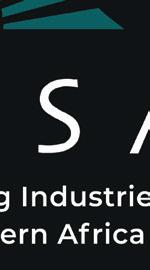








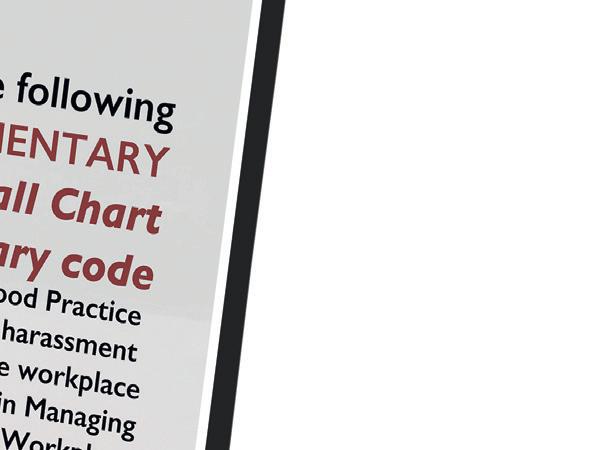



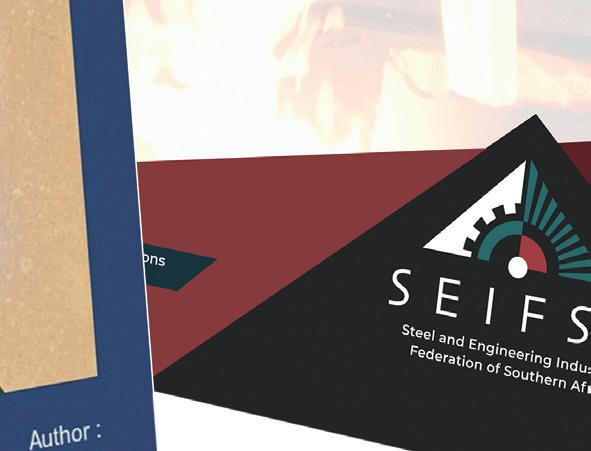
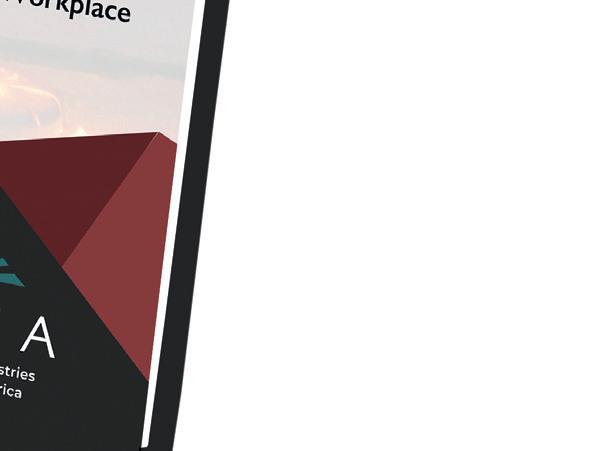

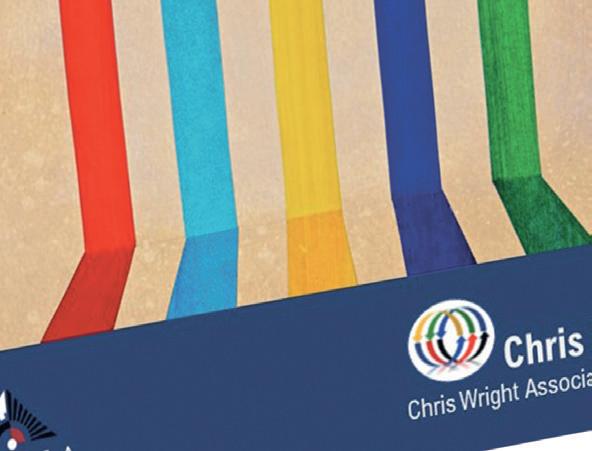






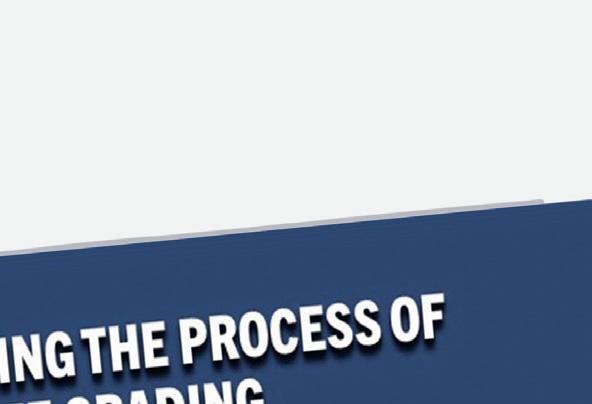
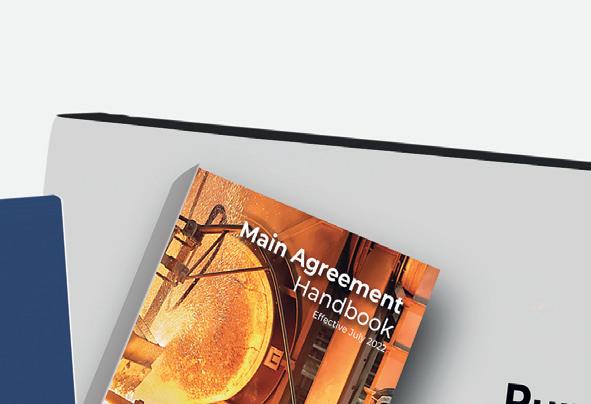


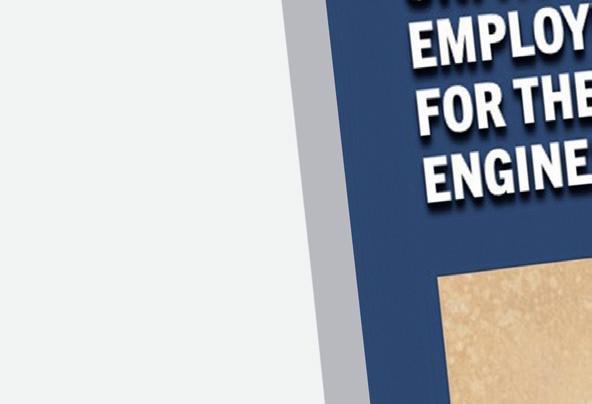

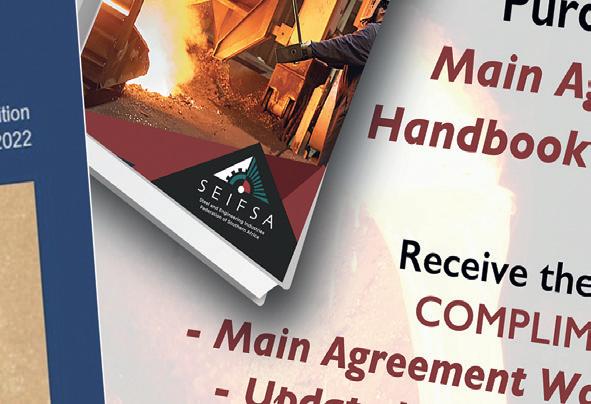
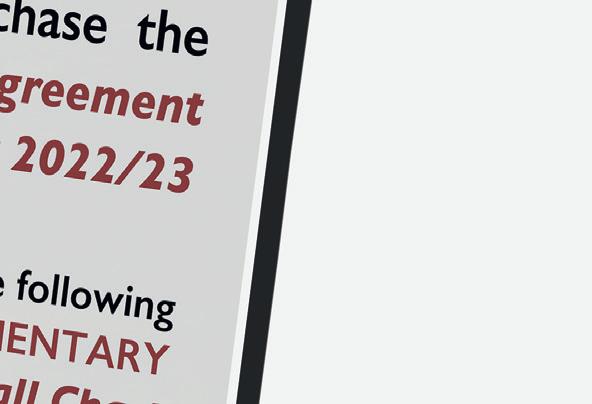








































I am well aware that trust is exceptionally hard to earn and easy to break. But we’re not going to get out of this mess by tinkering at the edges, making small adjustments and compromises here and there and hoping things will get better.

At the Metal and Engineering Industries Bargaining Council, the apex industry body, where business and labour meet, a new way of engaging with one another is desper ately needed. If we all stay in our lanes, defend our corners and remain fixed in a win/ lose paradigm we will simply not find a common purpose about where to go, together.
The Bargaining Council, created almost eighty years ago, was established for a common purpose, painstakingly crafted by business and labour leaders of the day, determined we’d all have a better future.
As our country contemplates coalition government at all levels, one is reminded of how feuding employer organisations on the bargaining council tried working together. In truth, these experiences were neither enduring nor effective and anything but successful. Representatives, elected by their respective constituencies, to represent the best interest of the industry, have failed dismally in distinguishing between party and purpose.

more importantly the industry.
For the narrative to shift and the paradigm to change, we have little choice but to gather again.
With the gazettal of a new set of administration and dispute resolution levies, the Council has been given a new lease of life, a second chance to repurpose its core function. However, even with all the will in the world, the Council cannot do this on its own and hence the question, what can we, as elected representatives, do to shift the narrative away from win/ lose to win/win?
As parties to the bargaining council, we haven’t had a good track record in the past 12 years. We have all to varying degrees been guilty of prioritising one’s own selfish needs and agendas above what could be in the best interest of the sector as a whole.
alluded, there is more uniting the different parties on each side and across of the table than dividing us. Afterall, we are all in this together.
Lucio Trentini Chief Executive OfficerInevitably, where party overrules purpose, irreconcilable differences, indecision and destruction is what follows. It serves little purpose in allocating blame; we are all complicit in varying degrees and we all stand accused of not just having failed our respective constituencies but
The need for growth is beyond urgent. We require a substantial shift from the failed modus operandi of the last 12 years. What is needed is an end to the self-inflicted damage that party posturing and the pursuit of narrow agendas have caused.
The situation is beyond urgent. We need a plan of action. If we, as elected representatives on the Council, cannot chart a clear course ahead in tackling the obstacles in the industry to job security and growth, what is the point of holding onto a bargaining council? What we need, now more than ever before, is an understanding of the difference between compromise and consensus. There is little doubt we need more, much more of the latter. As I’ve

In my last note I put a challenge to our employer colleagues on the Metals and Engineering Industries Bargaining Council (MEIBC) that given that our economy is on its knees – now would be a good time to rise above the rhetoric and play a more constructive role in the affairs of the Council. After all, I said, employers represented by the Employer Organizations on the MEIBC have far more in common than what they think.

If
on the private sector. The President is well aware that he cannot solve the country’s problems alone. The state needs the private sector to step up in a big way.
Over the last ten years, trust between employer organizations on the bargain ing council has all but been eroded. This has severely hampered the work of the bargaining council, has almost led to its liquidation and created a toxic and dys functional operating environment that has made it impossible to even begin ad dressing the real challenges facing our sector.
The MEIBC, once the benchmark, for all Bargaining Councils, is today a shadow of its former self, lurching from one crisis to the next. Staff are demoralized, many have left and it’s a miracle that they have been able to keep the doors open, given that their existence depends solely on two income streams, the administration and dispute levy, both of which were last reviewed in 2011.
For South Africa, our economy and the metals and engineering industries to dig itself out of the current crisis, business has to take the lead. Whilst it is up to employers to keep the wheels of industry turning, the job of all role players on the MEIBC is to create a predictable, stable policy environment and for this to succeed requires trust.

Bargaining Council are created by the parties that sit-on them, to provide a platform to conclude agreements covering terms and conditions of employment, including so cial security benefit fund agreements. More importantly, the platform created by a bargaining council, in bringing organized business and labour around a single table, in an atmosphere of collaboration and joint problem solving ideally should be aimed at highlighting, debating and addressing the many obstacles standing in the way of meaningful interventions in moving the needle forward on job retention, creation and economic prosperity.
This sadly, has not been the case on our Bargaining Council for many years. It serves no purpose to allocate who is mainly, partly or not at all to blame for this sorry state of affairs. As participants and I refer specifically to the employer representatives on the Council, are all culpable, in varying degrees.
we are going to survive this current crisis, we know that government is pinning its hopes of an economic revival
Trust is built over time and requires a level of transpar ency that has not been forthcoming from within the employer bloc. Rebuilding trust is difficult, but is vital if the MEIBC is to play a pivotal role in facilitating meaningful and constructive dialogue between all social partners.

The point here is that trust needs to be rebuilt, not so much as between the trade unions themselves or in the engagement process between trade unions and employers but instead amongst the different employer groupings on the Council. This is where the relationship, dynamic and mind-set to move forward has completely broken down. It’s a tragedy that more often than not unions on the MEIBC are able to find a single unified voice as opposed to the differing and bickering voices that make up the employer bloc.
The stakes are higher than they have ever been. Our economy is under siege as it battles a job, growth and hunger crisis. A devastating 63.9% of South Africans under the age of 24 are unemployed, consumer inflation is at a 13 year high and one in four people live below the food poverty line.
to the crisis facing our sector, how can we pull together and build the MEIBC that we are supposed to serve and finally, how can we move beyond our narrow and fixed paradigms. I believe we have no choice; we can continue to quibble, disagree and look to score points off one another or we can wipe the slate clean and start afresh. The choice is quite simple, change the paradigm or continue on the path to eventual insignificance.
Employer representatives, duly elected by their respec tive constituencies, simply cannot afford to play fast and loose with the trust members have invested.
Who is prepared to lay down their arms (figuratively speaking) and take a seat at the table with a view on focusing on what unites us as opposed to what keeps us apart?
Lucio Trentini SEIFSA Chief ExecutiveIt’s high time employer representatives elected to serve on the Council bury the hatchet and take a step forward and ask: how can we make a meaningful contribution
We can consult and train on any of the matters of Economic and Commercial below:
• Theory and Calculation of Contract Price Adjustment;
• Research
• Insight & analysis
• International trade analysis

• Economic impact assessments
• Commercial contracts
• Statistical analysis
• Trends evaluation
The EC Division publishes annual/quarterly State of the Metals and Engineering Sector Reports and monthly Price Movements Reports. Flagship product of PIPS ( Price and Index Pages )
Economic and Commercial Services


• Adcorp Blu a division of Adcorp Staffing
Solutions (Pty) Ltd
• Adcorp BLU a division of Adcorp Workforce Solutions (Pty) Ltd
• Alos Business Solutions (Pty ) Ltd
• AMT Africa Recruitment
• AMT Placement Services
• Babanango Operations (Pty) Ltd
• CAP Personnel Placements (Pty) Ltd
• CDR Contracts (Pty) Ltd
• Consortium Personnel Consultants Pty (Ltd)
• CSG Resourcing (PTY) Ltd
• CSS Labour (Pty ) Ltd
• Eduardo Construction (Pty) Ltd
• EFS Multi Construction (Pty) Ltd
• ESG Recruitment cc
• Fempower Personnel (Pty) Ltd
• Gee 2 Kay (Pty) Ltd
• Impact Human Resources Pty Ltd
• Ithemba Langemphela
• JLH Group (Pty) Ltd
• Lavoro Matkri (Pty) Ltd
• Lekang Projects & Security Services cc
• Mabhele and Associates (Pty) Ltd
• Madobra (Pty) Ltd
• MECS Africa (Pty) Ltd
• MECS Growth (Pty) Ltd
• Molapo Quyn Outsourcing
• On Time Boiler And Engineering Support Services cc
• Phakisa Holdings (Pty) Ltd
• Phakisa MSP (Pty) Ltd
• Primeserv Denverdraft (Pty) Ltd
• Primeserv Staff Dynamix (Pty) Ltd
• PTS Metalwork (Pty) Ltd
• Qunu Staffing (Pty) Ltd
• Quyn International Outsourcing (Pty) Ltd
• Scribante Labour Consultants (Pty) Ltd
• Sindawonye Services
• Sivulamtfuba Construction and Projects
• Southey Personnel Services
• STAFFATACLICK (PTY) LTD
• Themba Njalo Camden
• Tributum Emawi (Pty) Ltd
• Vusithemba Mpumalanga




We can consult and train on any of the matters of Human Capital and Skills Development below:





• Skills Development Facilitator (SDF), Facilitator, Supervisory, Assessor, Moderator;


• Skills development Committee Training;
• How to earn maximum B-BBEE points through skills development;
• Workplace Skills Plan (WSP);
• Employment Equity Committee training and submission training;


• Change Management;
• Diversity and Social inclusion;
• Performance Management;
• Talent Management & Succession planning training;
• Self-motivated teams;
• HR Audit.
Human Capital and Skills Development Consultancy






Visit our website for a range of Human Capital and Skills Development publications.




The HC & SD Division has a network of Alliance Partners with a national footprint.


However, unlike most of our critics we haven’t been sitting on our hands all this time nor have we been negotiating with ourselves. Visit the SEIFSA Boardroom and view the names of SEIFSA Presidents, Captains of Industry, stretching back to 1944 and I would dare anyone to call any one of them weak.
Returning to R 78 per hour. In South Africa if one is not covered by a collective agreement, the Basic Conditions of Employment Act (BCEA) is applicable, in addition to binding statutory levies and contributions affecting all employers in a sector like ours.
So, how does one arrive at a Rate of R78 per hour? Simple, by applying the principle of total cost to employment.
It’s interesting to note that even if one had the freedom to pay National Minimum Wage or any other affordable rate, various cost to employment conditions contained in the BCEA, together with statutory levies and contributions, would still apply. Unfortunately, the notion of a free market, dictated by the natural laws of demand and supply, given our history and legacy, is just that – a notion. Since 1968 terms and conditions of employment in this sector have been bargained, fought for and begrudgingly agreed. Nothing was given away without difficult contestation.
Let’s examine in a little bit more detail the principle of total cost to employment.
Importantly, the above excludes: MEIBC Administration
Levy, MEIBC Dispute Levy, PPE, COVID Compliance etc. which must be paid whether or not one is covered by the Main Agreement – so, let’s round the CTC to 40% i.e., a 40% add on to the base rate of R 55.67 – which takes you to approx. R 77.93
be reviewed but alas we would rather spend all our time and energy fighting each other in the Courts, how short sighted.
However, keep in mind that if one were not covered by the Main Agreement all the above items denoted by an asterix would still apply, approx. 30%
Should you require any assistance on understanding any aspect of the recently gazetted Main Agreement, contact the SEIFSA Office on (011) 298-9400 and ask for Vuyiswa, Michael, Monica or Lucio - we will be more than happy to assist.
The point being that if one is going to blandly throw out a number, give it some context, narrative and explanation. Simply lamenting it’s too high is just not good enough. No one across all employer ranks is saying the current entry level rate is not too high. But there is context, history and narrative to this reality. In an ideal collective bargaining world this on its own would be enough to rally all employer groupings behind a single cause, a cause that seeks to ensure that if we stand any chance of encouraging entry of new workers into the industry, the entry level rate must
If you would like to find out a little bit more about the benefits of joining an Association federated to SEIFSA fill in the membership form, or send us an email at nuraan@ seifsa.co.za
Next week I will address the flexibility benefits contained in the Main Agreement, watch this space!
 Lucio Trentini Chief Executive Officer
Lucio Trentini Chief Executive Officer
Given that the Main Agreement was last gazette and extended in 2010 and many employers have been operating outside the terms and conditions of the Main Agreement – particularly when it comes to rates of pay – the signatories to the 2021/ 2024 Main Agreement agreed it would not be feasible or practical to expect these employers to come on board overnight. Hence, it was agreed that a phased approach would be needed and that this process would form part of a broader project aimed at eventually achieving parity with the Main Agreement. Phase-one of the project establishes the target of reaching 60% of the 2020 minimum rates of pay by 30 June 2024.
For purposes of illustration, below is the 2020 general wage table and the target of 60% to be reached by 30 June 2024.

Rate Minimum Wage 60% of 2020 Minimum Rates as at 1 July Wage Structure
2020
A 84,75 50,85
AA (6) 80,83 48,50
AA (start) 77,18 46,31
AB 73,73 44,24 B 70,53 42,32
C 67,96 40,78
D 66,58 39,95
DD 61,76 37,06
DDD 59,10 35,46
E 56,47 33,88
F 54,10 32,46
G 51,65 30,99
H 49,55 29,73
For employers operating in terms of a special phasein license of exemption paying less than 60% of the
2020 wage rates will be required to implement the 1 July 2023 wage increases as a Rand/ cents increase on what workers are actually earning.
For employers paying above 60% but less than 100% of the 2020 rates, operating in terms of a special phase-in license of exemption, will be required to award the 1 July 2023 wage increases as a Rand/cents increase on what workers are actually earning and calculate leave pay and leave enhancement pay on workers actual rates of pay.
The next round of industry increases will become applicable on 1 July 2023 and will again, be awarded on a Rand/cent basis. Any employer wishing to apply for an exemption from these increases is at liberty to do so on or before 31 July 2023.
Should you require any assistance on applying for a Special Phase-in Exemption or any other matter covered by the Main Agreement, please contact the SEIFSA Office on (011) 298-9400 and ask for Vuyiswa, Michael, Monica or Lucio - we will be more than happy to assist.
In light of the above, the MEIBC National Exemptions Policy has been amended by way of the insertion of a new section dealing with Phase-In Exemption.
The same principle applies across all the main agreement wage tables (i.e., electric cable; structural engineering; five grade; vehicle drivers; gate and fence manufacturing – but excluding apprentices and construction sites covered by a project labour agreement).
In broad terms the special phase-in license of exemption will stipulate that notwithstanding that an employer is paying below 60% of the 2020 rates (as per the table above), leave pay and leave enhancement pay must be calculated on the 60% rate as set-out above.
This new clause, referencing the Special Phase-In Exemption, is available to all employers covered by the scope of application of the Main Agreement, regardless of whether or not they are members of a party or non-party employer organization.
If you would like to find out a little bit more about the benefits of joining an Association federated to SEIFSA fill in the membership form, or send us an email at nuraan@seifsa.co.za
Next week I will address the elephant in the room, R78 per hour, watch this space!
Lucio Trentini SEIFSA Chief Executive OfficerThe Main Agreement does provide for a set of default conditions of employment and if an employer is happy to work a traditional fiveday work week, default Main Agreement terms and conditions are all encompassing and there shouldn’t be any matter in a traditional setting the Main Agreement does not cater for.
One of the biggest criticisms of the Main Agreement, besides wages, is the perception the Main Agreement is far too rigid and does not cater for the need to work alternative working time arrangements.

Perceptions, as we know, more often than not, inform reality, but in this case, reality is something completely different.
However, what if an employer is looking to move away from the traditional to something completely different and unique, what then? Clause 4 of the Main Agreement, hours of work, contains a gem of a provision dealing with alternative working time arrangements. This sub-clause was introduced into the Main Agreement during the 1999 round of Main Agreement negotiations and specifically commits employer and union parties to unreservedly supporting the introduction of flexible working time arrangements at individual companies in the industry.
In fact, the Main Agreement goes further to state, “the union and employer parties have agreed that management and workers, at individual company level, should be encouraged to adopt a flexible approach to the arrangement of their actual working hours, including annualization, averaging and/or the introduction of other flexible working time arrangements of mutual benefit to management and workers at these companies.”
The nature and extent of these alternative working arrangements may include and are not limited to:
annualization (i.e., the calculation of an employee’s hours on an annual basis); averaging of the work week; working an unpaid additional hour each week during the year in return for an agreed number of additional days paid annual leave; the operation of shifts at ordinary rates over weekends; compressed working week (i.e., employees work up to 12 hours per day without receiving overtime payment in return for a shorter work week); and any other alternative working time arrangement agreed between workers and management.
The last bullet point requires some repeating! Any other alternative working time arrangement agreed between workers and management.
Some employers may baulk at the words agreed between workers and management; however, the reality is this is an in-house or in-company conversation, requiring no need to apply for an exemption etc. All that is needed is the details of the agreed working time arrangements to be recorded in writing and signed by the representatives of the affected parties.
If you don’t already have a copy of the 2022/23 SEIFSA Main Agreement Handbook, which summarizes the 300 plus pages of the recently gazetted Main Agreement into a user friendly, easy to read handbook, now is the time to get one. If you wish to order the latest SEIFSA Main Agreement Handbook, click here If you would like to find out a little bit more about the benefits of joining an Association federated to SEIFSA fill in the membership form, or send us an email at nuraan@ seifsa.co.za
Contrary to perception, the Main Agreement caters for both the traditional and those who wish to break-out of the old into the new. As was said during the 1999 round of Main Agreement negotiations, of which I was privileged to be part, moving out of Jurassic Park to Star Wars!
Next week I will address the perception that the Main Agreement does not address productivity or the link between performance and reward, watch this space!
Lucio Trentini Chief Executive Officer

We consult and train on any of the matters below:






• Main Agreement;



• Grading;
• Chairing disciplinary enquiries;

• Shopfloor;
• Arbitration;

• Basic Conditions of Employment Act / employment contracts;



• Sick Leave and Absenteesm;



• Equal Pay for Equal Value Provisions;
• Labour Law matters;

• Dispute resolution;



• Conciliation;


• Labour Court;
• Retrenchments.
Visit our website for a range of Industrial and Labour Law publications


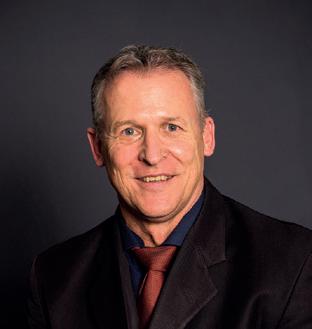

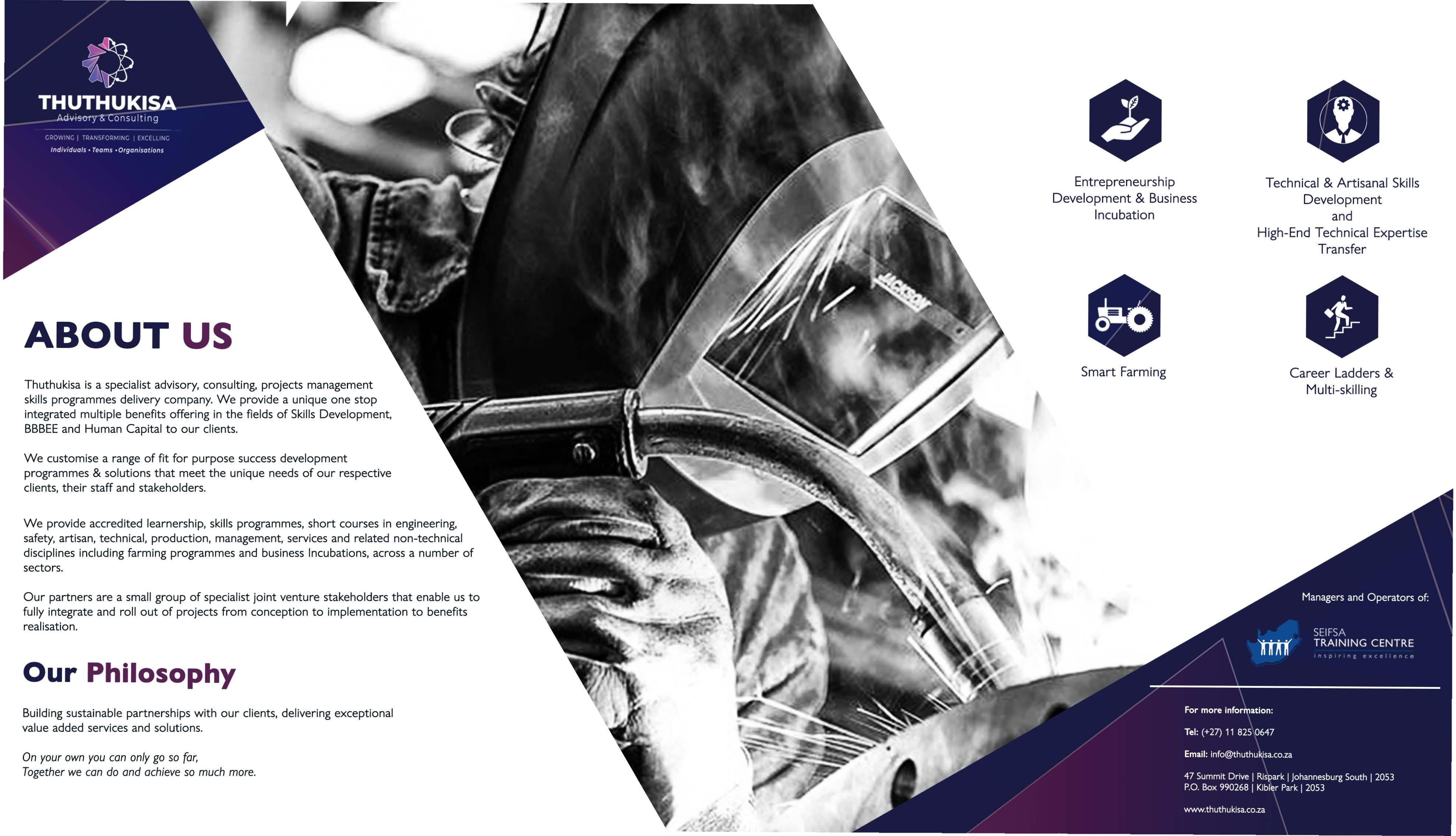
EVENT DURATION 1 day 1 day 1/2 day 1/2 day 1 day 2 days 1/2 day 3 days 1 day 1 day 1 day 1/2 day 1/2 day 5 days 1 day 1 day 1 day 1 day


LOCATION

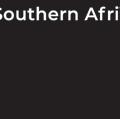

Webinar F2F Webinar Webinar MS Teams Webinar/ F2F Webinar Webinar/ F2F Webinar SEIFSA Webinar Webinar Webinar Webinar/ F2F MS Teams Webinar Webinar F2F


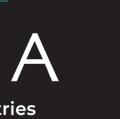

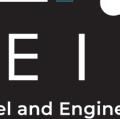




EVENT DURATION 3 days 1 day 1 day 1 day 1/2 day 1 day 1 day 1/2 day 1 day 1 day 1/2 day 1 day 1/2 day 5 days 1 day 1/2 day




















































